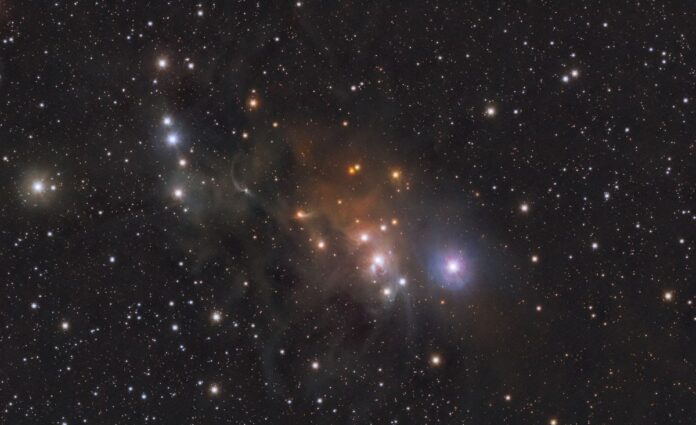A cosmic chameleon shows off its bright colors in a new infrared image from the European Southern Observatory (ESO).
This glowing region of space, broadly known as the Chamaeleon Complex, is a vast stellar nursery about 65 light-years wide and located approximately 522 light-years from Earth. The Chamaeleon Cloud, formally known as IC 2631, is the brightest nebula in this highly active star-forming region and the focal point of ESO’s new image.
IC 2631 is classified as a reflection nebula, according to a statement from the ESO, meaning it is made of dust clouds that reflect light emitted from nearby stars. Its portrait was taken using ESO’s Visible and Infrared Survey Telescope for Astronomy (VISTA) and released online on Monday (July 17).
Related: Strange Nebula Shapes, What Do You See?
The nebula at the center of ESO’s new image is primarily illuminated by a star called HD 97300, which is one of the youngest, most massive and brightest stars in its cosmic neighborhood. This star can be seen in the center-right of the field, surrounded by purple interstellar clouds. The bright areas of the photo represent interstellar gas and dust energized by young stars still in the process of forming.
“The cloud you see here is packed full of star-making material: Gas and dust,” ESO officials wrote in the statement. “At optical wavelengths, this region contains dark patches where dust completely blocks light from background sources. But this image was captured in infrared light, which can pass through dust almost unimpeded, allowing scientists to peer into the core of this cloud.”
Despite its name, IC 2631 can be observed in the sky throughout most of the year in the southern hemisphere, according to the statement.

